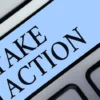
I talk to people every week who say the same thing:
“I’m just waiting for prices to drop.”
I get it. Really, I do.
There’s this idea that a big correction is just around the corner.
That the smart thing is to sit tight and wait for blood in the streets.
But here’s the thing nobody’s talking about:
What if the crash never comes?
What if prices don’t fall the way people expect?
What if this is the correction — and it’s just slower, quieter, and more frustrating than anyone thought?
I’ll give you a quick story.
Back in early 2020 — right before COVID hit — a close friend of mine bought a triplex.
He was nervous. Like, losing-sleep, second-guessing-everything kind of nervous.
At the time, it felt like he was making a life-or-death decision.
Everyone around him said the same thing: “Just wait. Prices are going to crash.”
But he pulled the trigger anyway.
Fast-forward to today — that property’s been one of his best moves.
It’s appreciated, it cash flows, the tenants are solid.
And now?
He walks around like he’s the smartest real estate investor who’s ever lived.
I bug him about it constantly.
I remind him how stressed he was. How he almost backed out.
How he was one spreadsheet away from a breakdown.
He denies all of it, of course.
But we both know the truth.
The point is — it didn’t feel like a “smart” decision at the time.
But in hindsight, it was the exact kind of uncomfortable that tends to pay off.
The truth is, real estate corrections don’t always look like cliff drops.
Sometimes they look like sideways markets.
Flat prices.
Tighter lending.
Weak headlines.
Everyone waiting.
And while everyone waits, inflation keeps grinding away in the background — slowly pushing the cost of everything higher.
That’s what currency debasement does.
It doesn’t always feel like a crisis.
It feels like $4 milk.
$22 burgers.
$900,000 starter homes.
And when you realize the value of your dollar is quietly shrinking, the idea of “waiting for cheaper prices” starts to lose its edge.
Let’s be real — the system isn’t built for prices to go down.
Governments need tax revenue.
And higher home prices = more land transfer tax, more property tax, more capital gains.
It’s hard to imagine any scenario where falling home prices help the people in charge.
That doesn’t mean prices will skyrocket again tomorrow.
But it does mean the rules of the game are tilted toward asset inflation over time — especially if they keep printing money to fund everything else.
Speaking of money printing…
The U.S. just passed something called The Big Beautiful Bill — yes, that’s actually the name.
Massive new spending. A fresh wave of debt.
All wrapped in a nice, shiny, Trump-branded bow.
And if that’s what’s happening south of the border, you better believe more spending is coming here too.
Because governments don’t shrink.
They spend.
And when they spend money they don’t have, they print it.
And when they print it, everything inflates.
So again… waiting has a cost.
The biggest opportunities usually show up when things feel uncertain.
And the people who take advantage?
They’re not being reckless — they’re being ready.
They’re:
- Getting creative with financing
- Partnering with friends or family
- Adding basement units or secondary suites
- Looking for off-market deals
- Building relationships with brokers who know where the value is hiding
They’re not waiting for permission — they’re finding a way in.
Because once things heat up again, so does the competition.
And when everyone decides it’s time to buy?
That’s when it gets expensive.
If you’re thinking about getting into the market — or back in — Don’t wait for perfect.
Just start planning.
Because even in a flat market, the system is still working against savers and for asset holders.
And real estate — especially when you use leverage wisely — is still one of the few ways to get ahead.
Until next week,
Vince
P.S. If you’re trying to figure out your entry point, let’s chat. Whether it’s creative financing, structuring a deal, or just mapping out a plan — I’m happy to help.
P.P.S. Next week, I’ll be digging into debt — and why it’s not the four-letter word the media makes it out to be.








